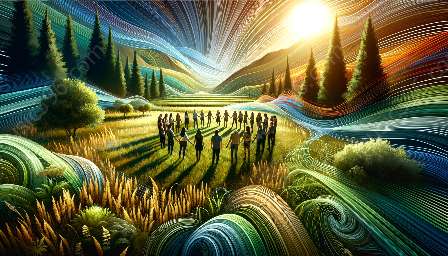Jazz and blues music have long been instrumental in shaping the cultural and social landscapes of America, and understanding their historical, cultural, and social contexts is crucial for vocalists looking to delve into these genres. In this article, we will explore the rich history and influences that have made jazz and blues music what it is today, delving into how these genres have influenced vocals & show tunes, as well as the vocal techniques associated with jazz and blues music.
The Origins of Jazz and Blues
The roots of jazz and blues music can be traced back to the African American community, particularly in the Southern United States. The music emerged from a complex blend of African musical traditions, spirituals, work songs, and the popular music of the late 19th and early 20th centuries. This amalgamation of cultures and experiences created a unique and powerful form of musical expression that would later come to be known as jazz and blues.
Cultural Influence
Jazz and blues music served as a means of cultural expression for African Americans, providing a voice for their experiences and struggles. The music captured the essence of life in the segregated South and spoke to the universal human experiences of love, pain, and joy. It became a medium through which stories were told and emotions were conveyed, transcending cultural barriers and resonating with people from all walks of life.
Social Impact
From a social perspective, jazz and blues music played a pivotal role in breaking down racial barriers and challenging societal norms. The music brought people together, fostering a sense of unity and camaraderie in the face of adversity. It provided a platform for marginalized voices to be heard and empowered individuals to speak out against injustice. Jazz and blues music became a symbol of resistance and resilience, shaping the social fabric of America and beyond.
Influence on Vocalists and Show Tunes
The raw emotion and improvisational nature of jazz and blues music have had a profound impact on vocalists and the development of show tunes. Vocalists in these genres are encouraged to infuse their performances with authenticity and vulnerability, allowing their emotions to shine through in their delivery. The influence of jazz and blues can be seen in the expressive and dynamic vocal techniques that have become synonymous with the genres, from soulful improvisation to nuanced phrasing and melodic interpretation.
Vocal Techniques in Jazz and Blues
Jazz and blues vocal techniques are characterized by their emphasis on individual expression and storytelling. Vocalists are encouraged to explore the full range of their voices, incorporating elements of scat singing, vocal improvisation, and rhythmic phrasing. The use of vocal inflections, slurs, and bends adds depth and emotion to the performance, capturing the essence of the music's soulful origins.
Impact on Show Tunes
When it comes to show tunes, the influence of jazz and blues music is unmistakable. Many iconic show tunes draw upon the emotional depth and melodic motifs of jazz and blues, infusing musical theater with a sense of raw, unfiltered emotion. The vocal delivery in show tunes often echoes the expressive nature of jazz and blues, with performers harnessing the power of storytelling and character portrayal to captivate audiences.
Conclusion
The cultural and social background of jazz and blues music is as diverse and rich as the music itself. By understanding the historical contexts and societal influences that shaped these genres, vocalists can gain valuable insights into the soulful and evocative nature of jazz and blues music. Harnessing the vocal techniques and emotional depth inherent in these genres, vocalists can bring a new level of authenticity and expressiveness to their performances, whether in jazz and blues music or in the realm of show tunes. By immersing themselves in the cultural and social legacy of jazz and blues, vocalists can tap into the timeless power of these genres and create truly compelling musical experiences.






























